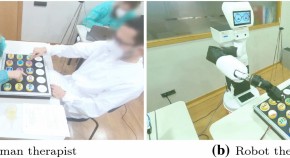Collection
Personalization and Adaptation in Human-Robot Interactive Communication
- Submission status
- Closed
Editors
-
Silvia Rossi
I am currently Associate Professor at Dipartimento di Ingegneria Elettrica e Tecnologie dell'Informazione - DIETI, University of Naples "Federico II", Italy. My research interests include Multi-agent Systems, Human-Robot Interaction, Cognitive Architectures and Behavior-based Robotics and User Profiling and Recommender Systems.
-
Mariacarla Staffa
Mariacarla Staffa is an Assistant Professor in Artificial Intelligence and Cognitive Robotics and Computer Science at the University of Naples Federico II, Italy. She is mainly interested in exploring computational neuroscience and cognitive robotics to generate innovative strategies and solutions for scientific problems and technological limitations.
-
Maartje De Graaf
Maartje De Graaf is an Assistant Professor at the department of Information and Computing Sciences at Utrecht University, The Netherlands. She is a Communication Scientist working in the multidisciplinary field of human-robot interaction. At the core, her research approaches communication from the sociopsychological tradition.
-
Cristina Gena
Cristina Gena is currently an associate professor at the Department of Computer Science, University of Torino, and President of the Master Degree in Communication, ICT, and Media (CIME). She teaches at the School of ICT (social Innovation Communication and new Technologies), and at the Bachelor in Computer Science and she's part of the PhD Commitee in Computer science. Since 2018, she holds the national habilitation as Full Professor in Computer Science.
Articles (12 in this collection)
-
-
Design, development, and evaluation of an interactive personalized social robot to monitor and coach post-stroke rehabilitation exercises
Authors (first, second and last of 5)
- Min Hun Lee
- Daniel P. Siewiorek
- Sergi Bermúdez i Badia
- Content type: OriginalPaper
- Published: 11 March 2023
- Pages: 545 - 569

-
A dichotomic approach to adaptive interaction for socially assistive robots
Authors (first, second and last of 6)
- Riccardo De Benedictis
- Alessandro Umbrico
- Amedeo Cesta
- Content type: OriginalPaper
- Open Access
- Published: 17 November 2022
- Pages: 293 - 331
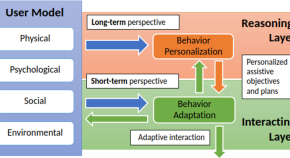
-
Conceptualization and development of an autonomous and personalized early literacy content and robot tutor behavior for preschool children
Authors
- Ohoud Almousa
- Sharifa Alghowinem
- Content type: OriginalPaper
- Open Access
- Published: 01 September 2022
- Pages: 261 - 291
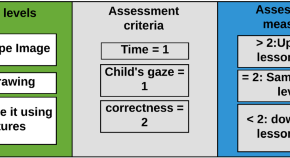
-
Personalised socially assistive robot for cardiac rehabilitation: Critical reflections on long-term interactions in the real world
Authors (first, second and last of 9)
- Bahar Irfan
- Nathalia Céspedes
- Marcela Múnera
- Content type: OriginalPaper
- Published: 19 July 2022
- Pages: 497 - 544

-
Deploying a robotic positive psychology coach to improve college students’ psychological well-being
Authors (first, second and last of 8)
- Sooyeon Jeong
- Laura Aymerich-Franch
- Cynthia Breazeal
- Content type: OriginalPaper
- Open Access
- Published: 11 July 2022
- Pages: 571 - 615

-
Personalized home-care support for the elderly: a field experience with a social robot at home
Authors
- Claudia Di Napoli
- Giovanni Ercolano
- Silvia Rossi
- Content type: OriginalPaper
- Open Access
- Published: 23 June 2022
- Pages: 405 - 440

-
Generating predicate suggestions based on the space of plans: an example of planning with preferences
Authors
- Gerard Canal
- Carme Torras
- Guillem Alenyà
- Content type: OriginalPaper
- Open Access
- Published: 31 May 2022
- Pages: 333 - 357
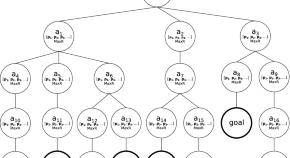
-
Adapting approaching proxemics of a service robot based on physical user behavior and user feedback
Authors (first, second and last of 4)
- S. M. Bhagya P. Samarakoon
- M. A. Viraj J. Muthugala
- Mohan Rajesh Elara
- Content type: OriginalPaper
- Published: 30 May 2022
- Pages: 195 - 220
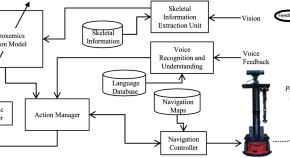
-
Empathy as an engaging strategy in social robotics: a pilot study
Authors (first, second and last of 4)
- Marialejandra García-Corretjer
- Raquel Ros
- David Miralles
- Content type: OriginalPaper
- Open Access
- Published: 20 May 2022
- Pages: 221 - 259

-
An adaptive decision-making system supported on user preference predictions for human–robot interactive communication
Authors (first, second and last of 5)
- Marcos Maroto-Gómez
- Álvaro Castro-González
- Miguel Ángel Salichs
- Content type: OriginalPaper
- Open Access
- Published: 09 April 2022
- Pages: 359 - 403
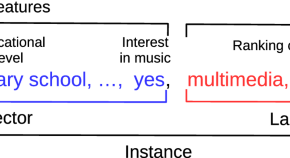
-
Introducing CARESSER: A framework for in situ learning robot social assistance from expert knowledge and demonstrations
Authors (first, second and last of 4)
- Antonio Andriella
- Carme Torras
- Guillem Alenyà
- Content type: OriginalPaper
- Open Access
- Published: 12 March 2022
- Pages: 441 - 496
